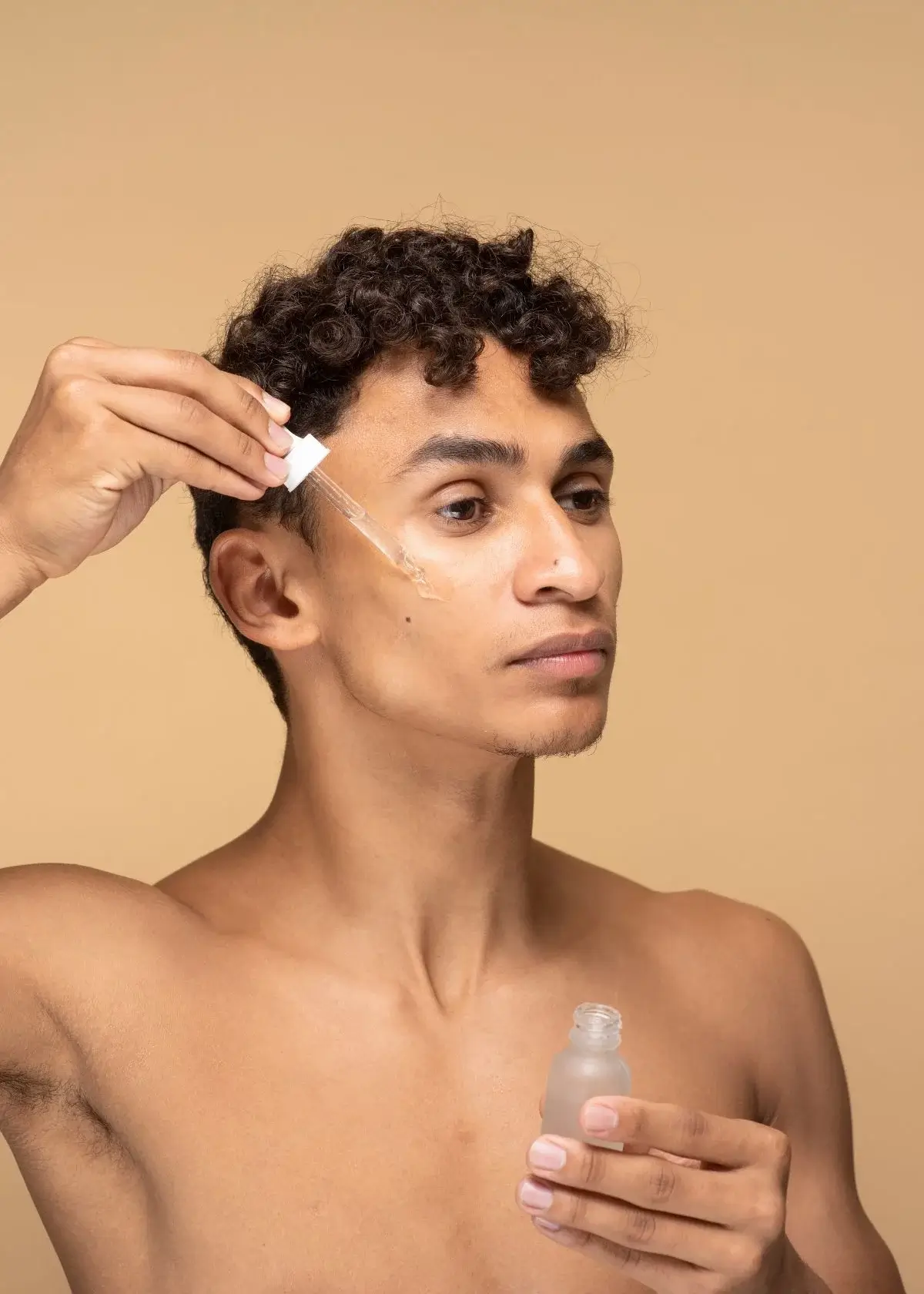When it comes to skincare, men often believe they don't need as much care as women do. However, this couldn't be further from the truth. Men's skin is exposed to various environmental factors and needs as much attention as women's. One of the key ingredients that can revolutionize men's skincare routine is retinol. Retinol is a skincare superstar that helps improve skin texture, reduce fine lines and wrinkles, and also helps with acne. But how often should men use retinol products? In this blog post, we will dive deep into this topic and give you the ultimate guide to incorporating retinol into your skincare routine.
Understanding what retinol is
Retinol is a derivative of vitamin A and is often used in skincare products due to its powerful anti-aging properties. It is known for its ability to increase cell turnover, which helps to exfoliate dead skin cells and promote the growth of new, healthy skin cells. It can also help to reduce hyperpigmentation, fine lines, and wrinkles. It is important to note that retinol can cause skin irritation, especially when overused, so it is crucial to use it in moderation.
Starting with a low-concentration
When starting with retinol in your skincare routine, starting with a low concentration is advised to minimize the risk of skin irritation. A 0.5% concentration of retinol is a good starting point. You can initially apply it to your face once or twice a week, then gradually increase the frequency and concentration as your skin gets used to it.
Listening to your skin
Every individual's skin is unique and may react differently to retinol. It's essential to listen to your skin's response to retinol and adjust the frequency accordingly. If your skin shows signs of irritation, decrease the frequency or take a break from using it for a while. Overusing retinol can cause dryness, flakiness, and breakouts, so finding the right balance for your skin is crucial.
Using retinol at night
Retinol can make your skin photosensitive, which means it can make your skin more prone to sun damage. It is recommended to use retinol products at night only, followed by a moisturizer to soothe and hydrate the skin. Applying sunscreen during the day is essential to protect your skin from UV rays.
Spacing out retinol treatments
It's best to space out retinol treatments and avoid using them alongside other active skincare ingredients like AHAs, BHAs, and Vitamin C. Using multiple actives simultaneously can cause skin irritation and sensitivity. If you're using retinol, opt for a simple routine that includes a cleanser, a retinol product, and a moisturizer.
Incorporating retinol products into your skincare routine can help you achieve healthy, glowing, and youthful skin. However, it is essential to use it in moderation and listen to your skin's response to avoid irritation and sensitivity. It's always good to start with a low concentration and gradually build up the frequency and concentration. Always apply sunscreen during the day and space out your retinol treatments to avoid overdoing it. By following these guidelines, you can enjoy the benefits of retinol without damaging your skin. So, go ahead and give your skin the love it deserves!
Looking for the perfect retinol product to add to your skincare routine? We have done the research for you and found the best retinol for men out there; with its powerful anti-aging properties and ability to even out skin tone, retinol should be a staple in every man's skincare arsenal. Don't waste your time and money on products that won't deliver the results you're looking for. Follow the link to discover your new favorite retinol and take the first step towards healthier, younger-looking skin.
What is the shelf life of retinol products, and how should they be stored?
Retinol products typically have a shelf life of 6 months to 2 years, depending on formulation, packaging, and preservatives used. To extend their longevity, it's crucial to store them properly. Keep your retinol products in a cool, dark place, away from direct sunlight and excessive heat, as these factors can degrade the active ingredient. Besides, ensure that the containers are tightly closed to prevent air exposure, which can lead to a loss of potency. Some individuals also choose to refrigerate their retinol products, especially if they contain more delicate formulations, which can further enhance their shelf life.

What is the typical duration to see noticeable results from using retinol?
The timeline for experiencing noticeable results from retinol can vary widely from person to person. Most users generally begin to see skin texture and tone improvements within 4 to 12 weeks of consistent use. However, it's important to note that deeper wrinkles and fine lines may require more extended use, often several months, before significant changes become apparent. It's crucial to approach retinol with patience and a gradual introduction into your skincare routine, as it can initially cause skin sensitivity, redness, or peeling before the full benefits emerge.

What are the considerations for using retinol if you have sensitive skin?
If you have sensitive skin, using retinol requires extra care and attention. Start with a lower retinol concentration, typically around 0.25% or less, and use it sparingly, initially applying it 2-3 times a week, gradually increasing frequency as your skin builds tolerance. To minimize potential dryness, redness, or irritation, consider using a moisturizer before or after applying the retinol product. Besides, it's imperative to incorporate sunscreen into your daily routine when using retinol, as it can make your skin more vulnerable to sun damage and UV radiation, potentially exacerbating sensitivity.

How should I navigate retinol use in combination with other anti-aging ingredients?
Combining retinol with other anti-aging products can be highly effective when done correctly. To maximize results, it's advisable to apply vitamin C products in the morning and retinol at night, as they work best at different times of the day and can potentially interact negatively if applied simultaneously. Furthermore, ensure that your skincare regimen includes a gentle cleanser and a moisturizer to maintain overall skin health and hydration. This balanced approach can help you harness the full benefits of retinol while minimizing the risk of adverse effects.

How does retinol contribute to a brighter and more even skin tone in men?
Retinol plays a pivotal role in achieving a brighter and more even skin tone in men by facilitating several crucial processes:
- It enhances skin cell turnover, promoting the shedding of older, pigmented skin cells and the emergence of newer, healthier ones. This process effectively reduces the appearance of pigmentation, sunspots, and uneven skin tone, leading to a brighter complexion.
- Retinol stimulates collagen production, improving skin texture and diminishing the visibility of fine lines and wrinkles.
- It aids in unclogging pores, particularly beneficial for men prone to acne, ultimately reducing the appearance of acne scars and blemishes.
Should men with oily skin use retinol differently than those with dry skin?
Yes, the approach to retinol can differ based on your skin type, whether it's oily or dry. For men with oily skin, selecting lighter, gel-based retinol formulations is advisable, as they are less likely to exacerbate oiliness or clog pores. Begin with a lower retinol concentration, using it sparingly initially and gradually increasing frequency to avoid over-drying the skin. Maintaining a consistent skincare routine that includes gentle cleansing and a non-comedogenic moisturizer is essential. Conversely, men with dry skin may opt for more affluent, cream-based retinol products and tolerate higher concentrations more quickly.







